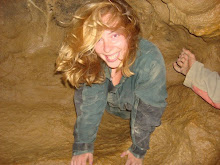It’s holiday season in Guatemala once again, and for those of us who are sticking around, this often means endless days of snowy day-dreams, turkey-gravy drools and general hot-cocoa nostalgia. This is my second holiday season here in Guatemala, and while I find myself thinking of all of those things once again I’m also thinking about children. No, not the millions of children that seem to rule Guatemala and our lives, but a few orphaned Guatemalan children I had the chance to encounter in a recent visit with a few other PCV’s to Hospicio San Jose. Like many orphanages, the children there are ordinary, happy and giddy, except for one minute difference: most of them are HIV positive.
Hospicio San Jose was opened in 1989, in San Lucas, Sacatepéquez, as a clinic for individuals who were terminally ill from tuberculosis and other infections. As the HIV epidemic spread to Guatemala, the Hospicio also began taking-in individuals infected with HIV/AIDS, as many hospitals at that time refused to take such patients due to stigma and general lack of knowledge about HIV/AIDS. It didn’t take long for the hospice to begin receiving their first HIV-positive babies and children who had been abandoned by parents all over the country. Today, the hospice has over 70 children and offer external services to hundreds of HIV-positive adults. The hospice employs over 70 personnel, including doctors, nurses, care-takers, educators, psychologists, social workers, lab technicians, volunteers, a dentist, and even a physical therapist, all working in a vast and sophisticated complex of buildings which include a clinic, chapel, research laboratory, offices, cafeteria, dormitories, and playground.
During our visit, we got the chance to observe a waiting-room charla, where an educator was giving a charla on stigma and discrimination to HIV-positive adults. One particular moment caught my attention when the educator asked, “What happens when an accident happens, what is the first thing you will have to say at the hospital?” Only one woman shyly bowed down and answered, “Soy VIH positivo.” At that moment, I realized this had been the first time I had been around so many HIV-positive individuals, I bowed my own head down too, trying not to stare, as if I were rudely intruding in their private, personal lives. I was perplexed by my own reaction, why did I feel so out of place, so ashamed? Was my own verguenza my way of playing into stigma and discrimination too? In the end, what was so different about these individuals? The answer I know now is this: nothing at all.
And this is the exact message that the Hospicio tries to convey every day to their patients and visitors. It is a space where individuals can become comfortable and talk openly about their problems and their every-day lives, and realize that they are, after all, just like everyone else. You don’t have to sit-in a waiting room charla to understand this, it can be seen all over the walls, with messages and articles of hope, happiness and life. The hospicio’s logo says it all, “Estoy Feliz de Vivir.”
The hospicio is a perfect metaphor for the transcendence of HIV/AIDS since its emergence in the 1980’s; it is no longer about death, but it is about a culture of life. Exhibit A - While at the hospicio, we were shown pictures of babies that had arrived at the hospicio at the brink of death, but the pictures we saw subsequently completely shocked me: pictures of those same babies, older, bigger, full of life and even quite plump (the educator even joked about dieting one of the kids). But perhaps this is the most important point - With the help of clinics such as Hospicio San Jose and the advancements in antiretroviral medications, the face of HIV/AIDS is changing. It is no longer an epidemic portrayed by a scrawny, lifeless body on a hospital bed, but rather by a happy and healthy child. And I hope that if there’s anything that you can take away from this article is that you start thinking about HIV/AIDS as life, as opposed to death.
As I step back into memories of walks through halls filled with children, Christmas trees, adornments and toys, I remember what one of the educators mentioned to us, “Lo que mata no es el VIH/SIDA, es la estigma y discriminación.” So I challenge you. I challenge you to visit the center, heck to talk to my crazy-ass, I challenge you to help end this stigma and discrimination in your communities. Finally, one of the last things I asked was how the children would be celebrating Christmas this year, the same educator answered something like this, “Well, the same as everyone else, with a big dinner, and of course, lots of fireworks.”
Anyone who wants to donate school supplies for the children next year or is just interested in visiting or learning more about the center, please contact me, Esther, at spinej17@gmail.com or anyone else you know on the HIV Committee.











